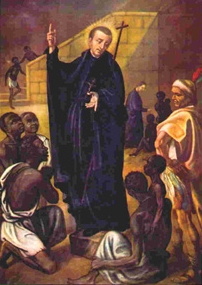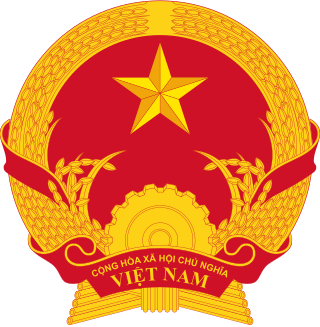Related Research Articles

The Central African Republic (CAR) is a landlocked country in Central Africa. It is bordered by Chad to the north, Sudan to the northeast, South Sudan to the southeast, the Democratic Republic of the Congo to the south, the Republic of the Congo to the southwest, and Cameroon to the west.

The persecution of Christians can be historically traced from the first century of the Christian era to the present day. Christian missionaries and converts to Christianity have both been targeted for persecution, sometimes to the point of being martyred for their faith, ever since the emergence of Christianity.

The Organisation of Islamic Cooperation, formerly the Organisation of the Islamic Conference, is an intergovernmental organization founded in 1969, consisting of 57 member states, with 48 being Muslim-majority countries. The organisation states that it is "the collective voice of the Muslim world" and works to "safeguard and protect the interests of the Muslim world in the spirit of promoting international peace and harmony".

Peter Claver SJ was a Spanish Jesuit priest and missionary born in Verdú (Spain) who, due to his life and work, became the patron saint of slaves, the Republic of Colombia, and ministry to African Americans.
Human rights in China are periodically reviewed by the United Nations Human Rights Committee (UNHRC), on which the Chinese Communist Party (CCP), government of the People's Republic of China (PRC) and various foreign governments and human rights organizations have often disagreed. CCP and PRC authorities, their supporters, and other proponents claim that existing policies and enforcement measures are sufficient to guard against human rights abuses. However, other countries and their authorities, international non-governmental organizations (NGOs) including Human Rights in China and Amnesty International, and citizens, lawyers, and dissidents inside the country, state that the authorities in mainland China regularly sanction or organize such abuses.
The United Nations Prizes in the Field of Human Rights were instituted by United Nations General Assembly in 1966. They are intended to "honour and commend people and organizations which have made an outstanding contribution to the promotion and protection of the human rights embodied in the Universal Declaration of Human Rights and in other United Nations human rights instruments".
Persecution of Christians in the post–Cold War era refers to the persecution of Christians from 1989 to the present. Part of a global problem of religious persecution, persecution of Christians in this era is taking place in Africa, the Americas, Europe, Asia and Middle East.

Human rights in Vietnam are among the poorest in the world, as considered by various domestic and international academics, dissidents and non-governmental organizations (NGOs) such as Amnesty International (AI), Human Rights Watch (HRW), and the United Nations High Commissioner for Human Rights (OHCHR).

Human rights in Nigeria are protected under the current constitution of 1999. While Nigeria has made major improvements in human rights under this constitution, the American Human Rights Report of 2012 notes several areas where more improvement is needed, which includes: abuses by Boko Haram, killings by government forces, lack of social equality and issues with freedom of speech. The Human Rights Watch's 2015 World Report states that intensified violence by Boko Haram, restrictions of LGBTIQ rights and government corruption continue to undermine the status of human rights in Nigeria.
Željko Kopanja was a Bosnian newspaper editor and director of the newspaper Nezavisne Novine. The Christian Science Monitor described him as an equal critic of all parties without regard to ethnicity and "probably the most feared journalist in Bosnia and Herzegovina." On August 8, 2016 Željko Kopanja died from a cardiac arrest.

George Harold Clements was a Black Catholic priest who, in 1981, became the first Catholic priest in the Chicago area to adopt a child. He was also instrumental in the Black Catholic Movement, which sought to establish African-American culture in the liturgical and organizational life of the Catholic Church.

Michael Kpakala Francis was a Liberian prelate of the Catholic Church who led the Apostolic Vicariate of Monrovia from 1976 to 1981 and then served as the first Archbishop of the newly established Archdiocese of Monrovia from 1981 to 2011.

Christianity is a minority religion in Burkina Faso. According to The World Factbook in 2019, Christians constitutes approximately 30% of the population, with Catholics representing 23.3% and Protestants 6.5%. According to official government estimates in 2008 the percentages are lower: 23.2% are Christians. The exact percentages might be hard to accurately predict due to a high degree of Syncretism that occurs in the country between Christians or Muslims and Traditional indigenous beliefs.

From the Imperial Pahlavi dynasty, through the Islamic Revolution (1979), to the era of the Islamic Republic of Iran, government treatment of Iranian citizens' rights has been criticized by Iranians, international human rights activists, writers, and NGOs. While the monarchy under the rule of the shahs was widely attacked by most Western watchdog organizations for having an abysmal human rights record, the government of the Islamic Republic which succeeded it is considered still worse by many.
Islam is the state religion of Saudi Arabia. The government of Saudi Arabia has been criticized for its restrictions on religious freedom. Saudi law requires its citizens to be Muslim, and, public worship by adherents of religions other than Islam is forbidden. Any non-Muslim foreigner attempting to acquire Saudi Arabian nationality must convert to Islam. Furthermore, Hanbali is the official version of Sunni Islam and adherence to other sects is restricted. According to a 2012 online poll by WIN-Gallup International, 5% of 502 Saudi Arabians surveyed stated they were "convinced atheists".
Paulinus Costa was the Roman Catholic Archbishop of the archdiocese of Dhaka from 2005 to 2011.
Walter Paul Khotso Makhulu is an emeritus South African-born Anglican archbishop of Central Africa.

The Central African Republic Civil War is an ongoing civil war in the Central African Republic (CAR) involving the government, rebels from the Séléka coalition, and Anti-balaka militias.

Séléka CPSK-CPJP-UFDR was an alliance of rebel militia groups that subjugated the Central African Republic (CAR) on 24 March 2013. After its official dissolution in September 2013, the remaining rebel groups became known as Ex-Séléka. Séléka leader Michel Djotodia became the nation's president from March 2013 until his resignation in January 2014. Members of Séléka were almost all Muslim.
Between 7 and 9 May 2017 at least 136 civilians were killed in series of reprisal killings by Anti-balaka and UPC fighters.
References
- ↑ "Act of faith: the Catholic priest who puts his life on the line to save Muslims in Central African Republic". Sam Jones. The Guardian. 13 November 2014. Retrieved 26 April 2020.
- ↑ "Rights Activists Honored". Human Rights Watch. 10 August 2015. Retrieved 26 April 2020.